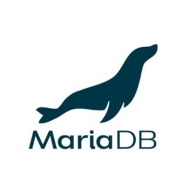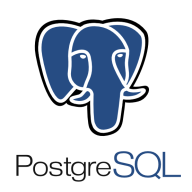

PostgreSQL and MariaDB compete in the relational database management system category. PostgreSQL appears to have the upper hand due to its extensibility and support for complex queries which are highly valued by users.
Features: PostgreSQL is known for its advanced feature set including support for JSON, NoSQL operations, and robust indexing which enhances performance in large-scale environments. In contrast, MariaDB emphasizes SQL compliance and ease of use. PostgreSQL's superior extensibility and capability to handle complex queries make it the preferred choice for those who need these advanced features.
Room for Improvement: PostgreSQL could benefit from improved GUI tools and enhanced documentation, as well as better scalability and replication features. MariaDB, meanwhile, should enhance its replication capabilities, customization options, and handling of large-scale data.
Ease of Deployment and Customer Service: Both PostgreSQL and MariaDB are popular for both on-premises and cloud deployment due to their open-source nature. PostgreSQL has a strong community offering comprehensive resources and active forums, whereas MariaDB is known for its straightforward implementation. However, neither offers dedicated customer service.
Pricing and ROI: Both PostgreSQL and MariaDB are free and open-source, offering cost-effective solutions without licensing fees. This fosters high ROI, particularly for small to medium-sized businesses looking for powerful yet affordable database management systems.
| Product | Market Share (%) |
|---|---|
| PostgreSQL | 14.4% |
| MariaDB | 5.9% |
| Other | 79.7% |
| Company Size | Count |
|---|---|
| Small Business | 27 |
| Midsize Enterprise | 12 |
| Large Enterprise | 26 |
| Company Size | Count |
|---|---|
| Small Business | 57 |
| Midsize Enterprise | 26 |
| Large Enterprise | 46 |
MariaDB is an open source relational database created by the original founders of MySQL. It is considered one of the most popular and trusted database servers throughout the world. MariaDB is a valued component found in most cloud offerings and is the default in many Linux tools. It is also widely used by Wikipedia, WordPress, and Google, among other well-known sites. Maria DB easily melds data into concise information from a vast array of applications, such as banking, online shopping, websites, and more.
MariaDB was originally created to improve MySQL performance. It is the most widely chosen database server due to the solution being super fast, robust, user-friendly, and easily scalable. MariaDB also offers a substantial ecosystem of plugins, storage engines, and numerous other valuable tools that make it very attractive for a significant offering of use cases.
The solution’s newest functionalities include compatibility with Oracle Database and Temporal Data Tables, and advanced clustering with Galera Cluster 4, which make it easier for users to research data history from any point in the past. Additionally, the most recent versions include JSON and GIS features. MariaDB is committed to staying an open source solution.
MariaDB Features
Reviews from Real Users
Faustine C., Engineering Supervisor- Corporate Data Solutions and Services at TZ Telecoms Corporation, shares, “The software provides a lot of information on what is happening inside the database. For most performance parameters it is easy to know if something is not right in the configuration or optimization which helps engineers take remedial fine-tuning measures. For example, if the database is underperforming it is easy to know which performance parameter can be adjusted to handle the workload. It is difficult to troubleshoot database issues if many performance parameters can not be monitored or debugged which is the case with some database management systems. It provides great monitoring of data storage, processing, and performance stability which is really important for real-time data storage and processing. It's a user-friendly product.”
A PeerSpot user who is a Senior Engineer at a tech services company relates, “ The solution's high availability is its most valuable aspect. We have found the product to be stable and the initial setup is pretty simple. I'd rate the solution at a ten out of ten. I'm very happy with it overall. I would recommend the solution to others. It's easy to find details about the product online and to learn about it.”
PostgreSQL is a versatile and reliable database management system commonly used for web development, data analysis, and building scalable databases.
It offers advanced features like indexing, replication, and transaction management. Users appreciate its flexibility, performance, and ability to handle large amounts of data efficiently. Its robustness, scalability, and support for complex queries make it highly valuable.
Additionally, PostgreSQL's extensibility, flexibility, community support, and frequent updates contribute to its ongoing improvement and stability.
We monitor all Open Source Databases reviews to prevent fraudulent reviews and keep review quality high. We do not post reviews by company employees or direct competitors. We validate each review for authenticity via cross-reference with LinkedIn, and personal follow-up with the reviewer when necessary.